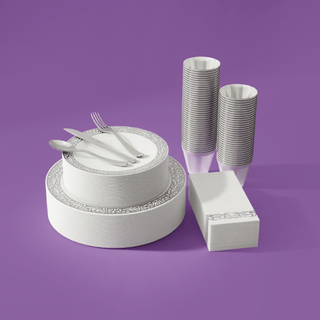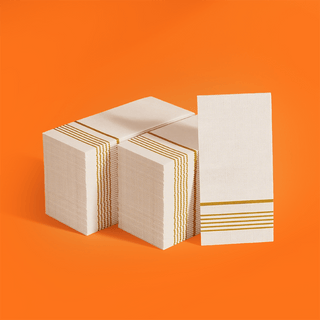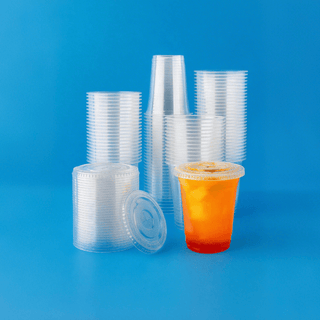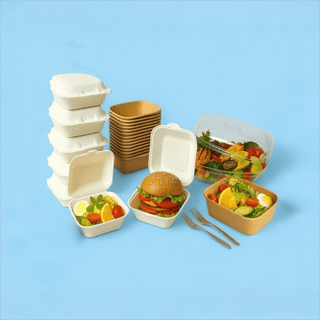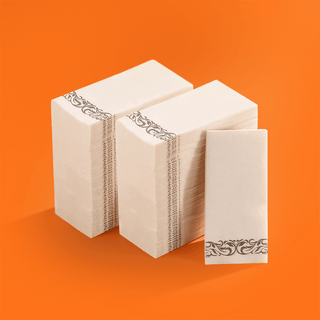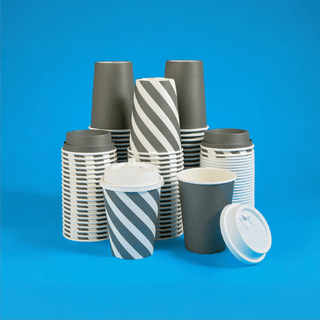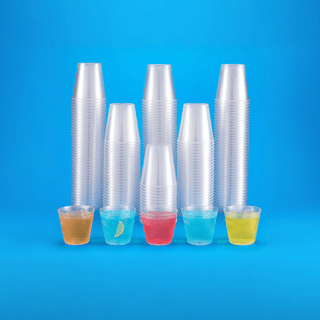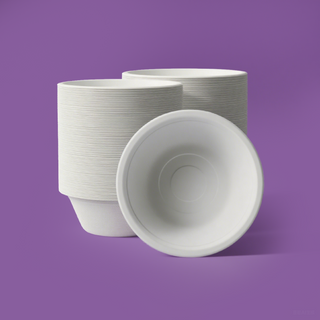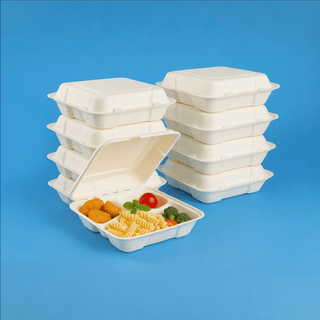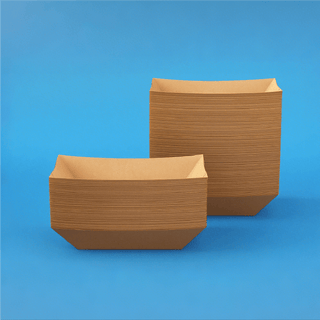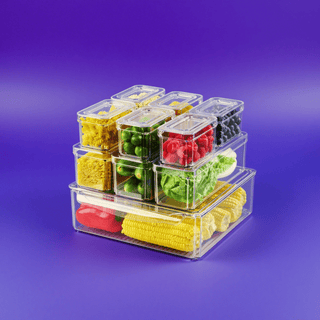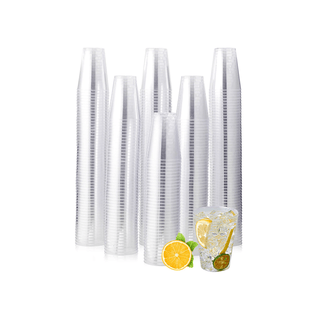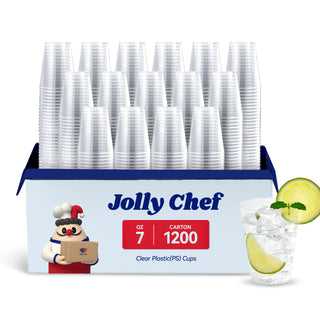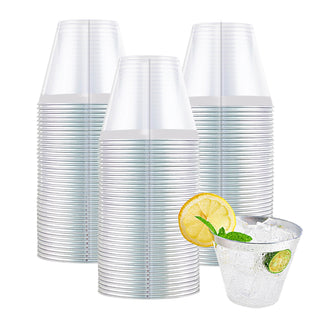
Material Choices for 8 Ounce Cups
You need to choose the right materials for 8 ounce plastic cups in your business. Most companies prefer polyethylene terephthalate cups because they offer high clarity, strong durability, and easy recycling. Polypropylene works well for hot drinks, while PLA and PS have specific uses but less market share. When you compare materials, look at cost, performance, and how each type fits your event needs. Jolly Chef provides polyethylene terephthalate cups that balance quality and practicality for business events.
Key Takeaways
-
Choose cup materials based on your event type and beverage needs to ensure the best performance and presentation.
-
PET cups offer clear, durable options for cold drinks and support professional branding with custom labels.
-
Polypropylene cups handle hot drinks well, providing heat resistance and flexibility for busy service.
-
Paper cups insulate hot beverages and allow creative branding but cost more and need proper disposal.
-
Consider cost, durability, environmental impact, and waste management when selecting cups to balance value and sustainability.
8 Ounce Plastic Cups Materials
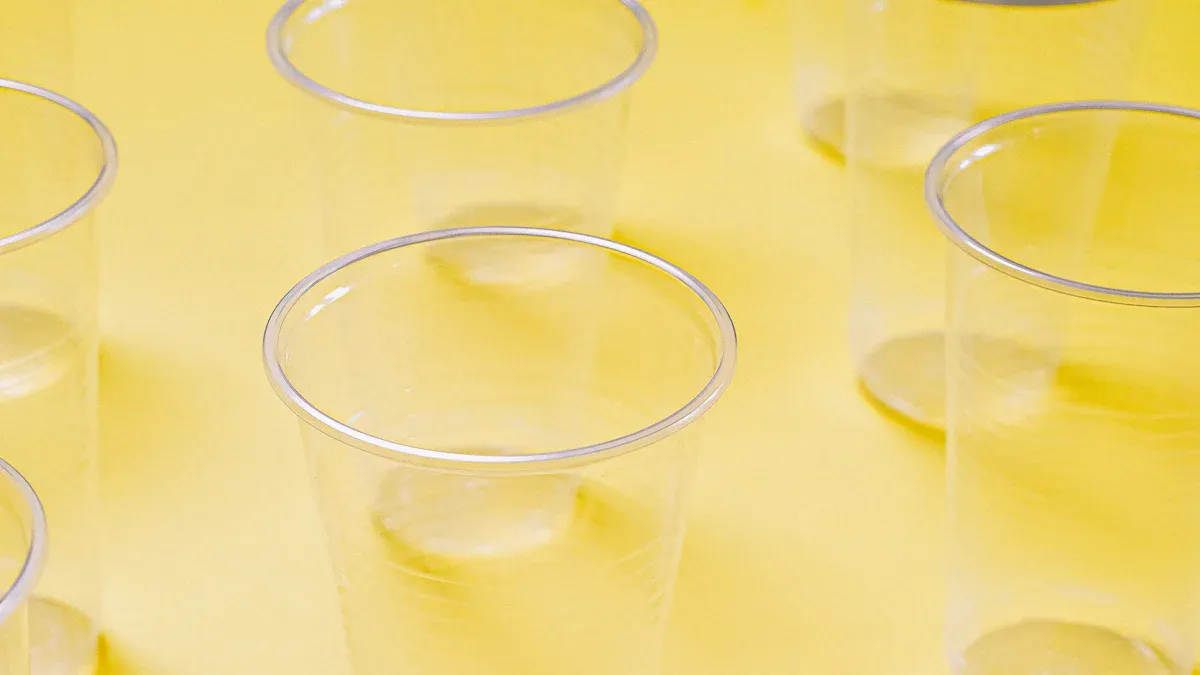
Choosing the right materials for 8 ounce plastic cups helps you meet business needs and customer expectations. You want disposable plastic cups that perform well, look professional, and fit your budget. Each material offers unique benefits for single-use applications. Here is a comparison of the most common options.
PET Plastic Cups (Jolly Chef)
Polyethylene terephthalate cups stand out in the market for their clarity and strength. You see these plastic cups at events, cafes, and restaurants where presentation matters. Jolly Chef’s PET cups offer a crystal-clear look that showcases drinks and desserts. You get a lightweight design that makes handling easy. These disposable plastic cups work best for cold beverages. The rolled rim and tight-fitting lids prevent spills, which is important for busy business events.
Tip: PET cups from Jolly Chef provide a professional appearance for your brand. You can use them for iced coffee, smoothies, and juices at parties or corporate gatherings.
Here is a quick comparison of PET plastic cups:
|
Aspect |
Details |
|---|---|
|
Material |
Polyethylene Terephthalate (PET) |
|
Key Properties |
Transparent, lightweight, suitable for food and beverage use |
|
Heat Resistance |
Low; suitable for temperatures below 70°C (158°F) |
|
Durability |
Rigid, shatter-resistant; ideal for cold beverages |
|
Advantages |
High clarity, lightweight, food contact safe |
|
Disadvantages |
Limited heat resistance |
|
Typical Applications |
Disposable cups for cold beverages, events, and visual presentation |
|
Market Trend |
Widely used in disposable food and beverage cups |
Jolly Chef’s polyethylene terephthalate cups deliver consistent quality and reliability. You can order in bulk for large events and enjoy fast shipping from a US-based warehouse. These single-use cups help you streamline service and cleanup.
PP Plastic Cups
Polypropylene plastic cups give you flexibility and heat resistance. You often choose these disposable plastic cups for hot drinks like tea or coffee. PP cups feel softer and bend without breaking. They handle microwave use and keep their shape with warm liquids. You pay less for PP cups, which helps control costs for high-volume service.
|
Attribute |
PP (Polypropylene) Cups |
PET (Polyethylene Terephthalate) Cups |
|---|---|---|
|
Durability |
Flexible, microwave safe, heat resistant |
Rigid, shatter-resistant; ideal for cold drinks |
|
Clarity |
Not highlighted for clarity |
Clear, glass-like appearance |
|
Cost |
Lower, suitable for hot beverage use |
Higher value for cold beverage presentation |
You use PP plastic cups for single-use hot beverage service in offices, cafeterias, and catering setups. These materials work well when you need durability and heat resistance.
PS Plastic Cups
Polystyrene plastic cups offer a cost-effective solution for single-use cold drinks. You find these disposable plastic cups at fast-food chains and self-serve stations. PS cups feel lightweight and stack easily for storage. They provide basic rigidity but can crack under pressure. You choose PS cups when you need a simple, budget-friendly option for water, soda, or juice.
-
PS materials deliver a smooth surface for easy branding.
-
These plastic cups suit high-turnover environments where speed and convenience matter.
-
You get a lower price point, which benefits large-scale events and quick-service businesses.
Paper Cups
Paper cups give you a different set of advantages for single-use beverage service. You select these materials for hot drinks and eco-conscious events. Paper cups insulate well, especially with double-wall or ripple designs. They protect hands from heat and keep drinks warm. Leak resistance depends on the quality of the inner lining.
|
Aspect |
Paper Cups |
Plastic Cups |
|---|---|---|
|
Environmental Impact |
More biodegradable; recycling is difficult due to plastic linings; sustainable sourcing important |
Non-biodegradable; major contributor to plastic pollution; cheaper but less sustainable |
|
Heat Resistance |
Better suited for hot drinks with heat-resistant linings; double-wall cups prevent burns |
Can warp or release toxins when heated; less suitable for hot beverages |
|
Cost |
Slightly more expensive; customizable with printing and biodegradable options |
Generally cheaper; limited customization; less sustainable |
|
Feature |
Paper Cups |
Plastic Cups |
|---|---|---|
|
Insulation |
Superior insulation for hot drinks |
Generally lack insulation; thin cups can become hot to hold |
|
Leak Resistance |
Depends on inner lining quality |
Smooth construction offers better leak resistance |
|
Environmental Impact |
Biodegradable options exist; compostable linings available |
Made from fossil fuels; higher carbon footprint |
You use paper cups for single-use hot beverage service at meetings, conferences, and upscale events. These materials allow for custom printing, which helps with branding.
PLA Cups
PLA cups use plant-based materials for single-use cold drinks. You choose PLA plastic cups when you want clarity and strength similar to PET. These disposable plastic cups work well for juices, samples, and cold beverages. PLA cups keep drinks chilled and do not leach harmful chemicals. You must store them in controlled conditions to maintain quality.
-
PLA cups are food-safe and certified for commercial composting.
-
They break down fully in industrial composting facilities within 90-180 days.
-
You use PLA cups only for cold drinks because heat causes softening or deformation.
-
These materials help you serve cold beverages at outdoor events, trade shows, and sampling stations.
-
PLA cups require proper disposal in commercial composting to realize their benefits.
You select PLA plastic cups for single-use service when you want a clear, sturdy option for cold drinks and need to meet specific procurement requirements.
Note: Always check the temperature guidelines for PLA cups. They work best for cold drinks and short-term storage.
Comparison Summary
You have many choices for 8 ounce plastic cups. Polyethylene terephthalate cups from Jolly Chef offer high clarity and professional presentation for business events. PP plastic cups suit hot drinks and flexible use. PS plastic cups provide a budget-friendly solution for cold beverages. Paper cups excel at insulation and branding for hot drinks. PLA cups deliver plant-based clarity for cold drinks in single-use scenarios. Your selection depends on your event type, beverage needs, and business priorities.
Cost Comparison
8 Ounce Plastic Cups Cost Factors
When you compare the cost of 8 ounce disposable plastic cups, several factors influence your decision. You need to consider the type of material, cup thickness, and whether the cup is biodegradable. Food safety compliance and local regulations can add to the total cost. Customization options, such as transparent designs, lids, and packaging, also affect pricing. Shipping logistics and supply chain stability play a role in the final cost for your business.
-
Material type (PET, PP, PS, paper, PLA)
-
Thickness and durability
-
Biodegradability and compliance
-
Custom features (lids, printing, packaging)
-
Shipping and supply chain reliability
You should evaluate these cost factors when choosing disposable plastic cups for your business events.
Initial Purchase Cost
You want to know how much you will spend upfront when buying disposable plastic cups in bulk. The initial purchase cost varies by material and packaging. Here is a comparison table for common cup types:
|
Cup Material |
Size (oz) |
Packaging Details |
Price per Carton/Pack |
Notes |
|---|---|---|---|---|
|
Paper |
8 |
50 cups/sleeve, 20 sleeves/carton |
$134.40 per carton |
Higher price among listed cups |
|
Paper |
8 |
50 cups/sleeve, 50 sleeves/carton |
$51.77 per carton |
Lower price option |
|
PLA |
12 |
50 cups/pack, 6 packs/carton |
$38.96 per carton |
No 8 oz price available |
|
PET |
12 |
50 cups/pack, 20 packs/carton |
$100.81 per carton |
No 8 oz price available |
|
Foam |
8 |
25 cups/bag, 40 bags/carton |
$41.04 per carton |
Least expensive among listed |
|
Foam |
8 |
25 cups/pack |
$1.20 per pack |
Pack price |
Jolly Chef offers PET disposable plastic cups in multiple sizes, with bulk pricing and subscription discounts. You can choose the quantity that fits your event size and budget. Bulk orders help you save on initial purchase cost and ensure you have enough supply for large gatherings.
Long-Term Value
You need to think about the life cycle of disposable plastic cups when planning for long-term value. PET cups provide strength, clarity, and safety for cold beverages. You can reuse PET cups for short periods, which adds value for high-volume events. PET cups work well with automated filling and sealing, making them efficient for business use. Polypropylene cups offer more durability and heat resistance, suitable for both hot and cold drinks. If you reuse polypropylene cups at least five times, you get the lowest life cycle cost. PET cups remain a practical choice for single-use or short-term reuse, especially when you need reliable performance and easy handling.
Waste Management Cost
Waste management is another important part of the life cycle cost for disposable plastic cups. You pay for disposal based on the material and local regulations. PET and PP cups are lightweight, which can lower transportation and disposal fees. Paper and PLA cups may require special handling, depending on your location. You should factor in waste management cost when choosing disposable cups for your business. Efficient supply chain solutions from Jolly Chef help you manage inventory and reduce waste, supporting your business goals.
Tip: Always review local disposal requirements before placing bulk orders for disposable plastic cups. This helps you avoid unexpected costs and ensures smooth event operations.
Design
Durability
You want cups that stand up to busy events and daily business use. The durability of each material affects how well your cups perform. PET cups from Jolly Chef offer strong resistance to cracks and breaks, making them reliable for cold drinks. Polypropylene cups handle both hot and cold beverages and resist impact, which helps in fast-paced environments. Paper cups with double-wall or ripple wrap construction last longer and protect hands from heat. PLA cups work best for cold drinks and short-term use. Rigid polystyrene cups suit party settings but may crack under pressure. The table below compares how each material performs in typical business conditions:
|
Cup Material |
Durability |
Heat Resistance |
Typical Use Conditions |
Additional Notes |
|---|---|---|---|---|
|
PET |
Durable for cold |
Low |
Cold drinks, events |
Lightweight, clear, recyclable |
|
PP |
High |
High |
Hot/cold drinks, daily use |
Flexible, impact-resistant |
|
PS (Rigid/Foam) |
Moderate |
Foam: moderate |
Parties, quick service |
Foam insulates, rigid cracks easily |
|
Paper (Double-wall) |
High |
Excellent |
Hot beverages, premium cafes |
Insulates, reduces burn risk |
|
PLA |
Limited |
Low |
Cold drinks, eco-conscious use |
Compostable, short-term use |
Insulation
Insulation matters when you serve hot or cold drinks. Polypropylene cups keep hot drinks warm and protect hands from heat. Double-wall and ripple paper cups trap heat, making them ideal for coffee or tea. PET and PLA cups work best for cold beverages, as they do not retain heat. Foam polystyrene cups provide some insulation for hot drinks but lack long-term strength. You should match cup insulation to your beverage type and service needs.
Tip: Choose double-wall paper cups or polypropylene cups for hot drinks. Use PET cups for cold beverages to maintain clarity and presentation.
Appearance
The look of your cups can influence customer perception at events or in your business. PET cups from Jolly Chef feature a crystal-clear design that showcases drinks and desserts. This clarity adds a professional touch to your table setup. Paper cups offer a clean surface for custom printing and branding. Ripple and double-wall paper cups have a textured finish that feels premium. PLA cups also provide good clarity for cold drinks. Rigid polystyrene cups come in bright colors and suit casual gatherings.
-
PET cups highlight beverage colors and layers.
-
Paper cups allow for creative designs and logos.
-
Ripple and double-wall cups add texture and grip.
Branding Potential (Jolly Chef)
Branding helps you stand out at business events and corporate gatherings. Jolly Chef’s PET cups give you a clear surface for custom labels and stickers. You can display your logo, event name, or promotional message. The sleek design of these cups enhances your brand image and makes your drinks look appealing. You can order in bulk and receive fast delivery from Jolly Chef’s US-based warehouse, which supports efficient event planning. PET cups work well for product launches, trade shows, and branded beverage service.
Block Quote: “Jolly Chef’s PET cups make your drinks look great and help your brand shine at every event.”
Environmental Impact
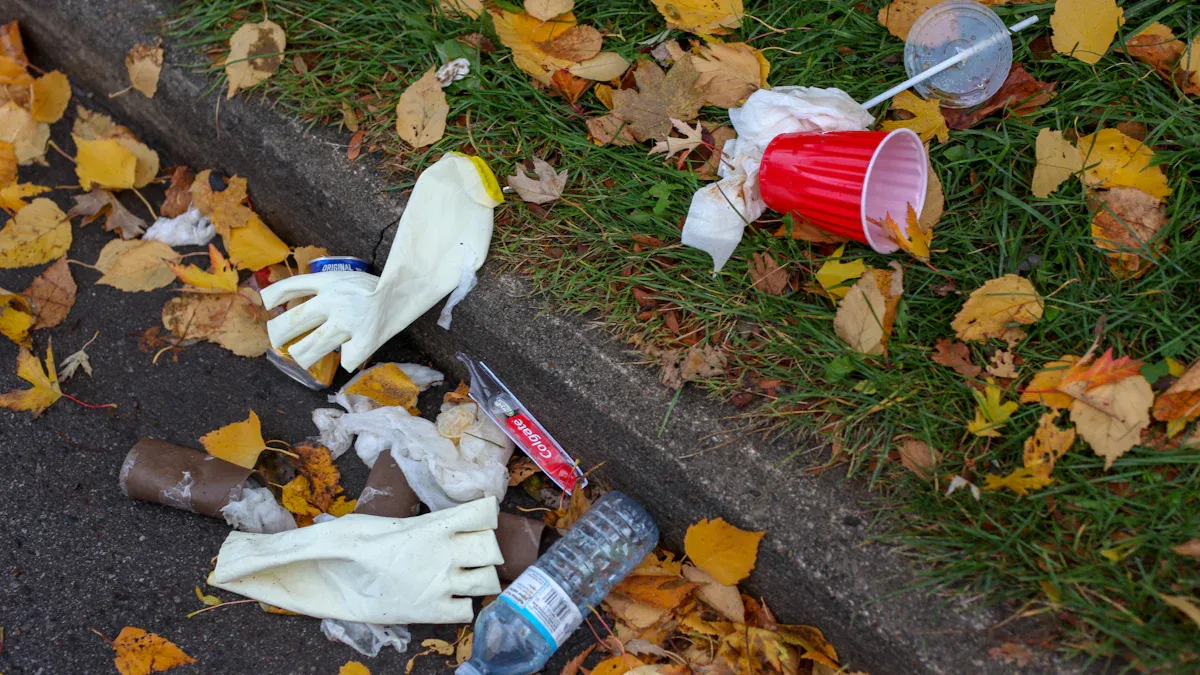
Production
You need to consider how different materials impact the environment during production. PET and PP cups use fossil fuels in their manufacturing process. PET stands out for its clarity and strength, making it a popular choice for single-use cold drinks. PS cups also come from petroleum-based sources and offer a low-cost option for high-volume events. Paper cups use wood pulp, and some have water-based coatings to improve performance. PLA cups use plant-based resources, which reduces reliance on fossil fuels. When you select sustainable materials, you help reduce the environmental footprint of your business. The life cycle of each cup starts with raw material extraction and continues through manufacturing, use, and disposal.
Recycling
The recycling process for 8 ounce cups depends on the material and local infrastructure. PET cups have a relatively efficient recycling process, especially when you keep them clean and separate from other waste. Many cities in North America and Europe have programs that accept PET cups. PP cups face more challenges because recycling plants for this material are less common. PS cups have low recycling rates and often end up in landfills. Paper cups are becoming easier to recycle, especially with new coatings that separate easily during processing. PLA cups require industrial composting facilities, which are not available everywhere. The table below shows how recycling rates and infrastructure compare:
|
Material |
Recycling Code |
Recycling Rate & Infrastructure |
Key Challenges |
Notes |
|---|---|---|---|---|
|
PET |
1 |
Easier to recycle; needs clean sorting |
Contamination |
Good for cold drinks; better prospects |
|
PP |
5 |
Limited recycling plants |
Less developed systems |
Used for hot drinks; faces challenges |
|
PS |
N/A |
Low rates; restricted in some areas |
Environmental concerns |
Used for cheap cups; problematic recycling |
|
Paper Cups |
N/A |
Improving with new coatings |
Mixed materials |
Innovations help recyclability |
|
PLA |
N/A |
Compostable only in industrial settings |
Needs special facilities |
Plant-based; limited composting |
You should check your local recycling process before choosing a material for your single-use cups. The life cycle of each cup includes collection, sorting, and processing, which affects your waste management strategy.
Biodegradability
Biodegradability plays a key role in the life cycle of single-use cups. PET, PP, and PS cups do not biodegrade and can persist in landfills for hundreds of years. Paper cups break down faster, especially if they use compostable linings. PLA cups biodegrade under industrial composting conditions, usually within 12 weeks. However, if you send PLA cups to a landfill, they may produce methane, a greenhouse gas. The table below summarizes biodegradability and disposal outcomes:
|
Material Type |
Biodegradability |
Landfill Outcome |
Composting Outcome |
|---|---|---|---|
|
PET, PP, PS |
Not biodegradable |
Persist for centuries |
Not compostable |
|
Paper Cups |
Biodegradable with right lining |
Break down faster |
Compostable if processed correctly |
|
PLA |
Biodegradable in industrial composting |
May emit methane |
Breaks down in 12 weeks |
You need to match your cup choice to your waste management plan. The life cycle of each material affects landfill space, greenhouse gas emissions, and your company’s environmental profile. Jolly Chef offers PET cups and other sustainable materials to help you align with sustainable practices and business goals.
Note: The effectiveness of compostable and recyclable cups depends on proper sorting and access to the right facilities. Always review your local options before making a decision.
Health and Safety
Food Safety
You need to ensure that every cup you use meets strict food safety standards. In the United States, PET, PP, and PS cups must comply with FDA regulations for food contact. The FDA reviews these plastics to confirm they do not contaminate drinks or food. In Europe, paper cups with PE or PLA coatings must meet EU Food Contact Material (EU FCM) standards. These rules guarantee that cups are safe for serving beverages at any business event. PLA cups and coatings come from renewable sources and also meet both FDA and EU requirements for food contact. When you choose cups that follow these standards, you protect your customers and your business reputation.
Chemical Risks
You want to avoid exposing your customers to harmful chemicals. Some plastics can leach substances like BPA, phthalates, or styrene, especially when heated. BPA and phthalates can disrupt hormones, while styrene is a possible carcinogen. Heat increases the risk of these chemicals moving into drinks. PET and PP cups are generally safe for single use with cold beverages. PP cups are heat-stable and microwave-safe, making them a safer choice for hot drinks. PS cups may release small amounts of styrene if used with hot liquids. Paper cups with PE or PLA linings do not have direct chemical leaching risks. Always match the cup material to the intended beverage temperature.
|
Material Type |
Chemical Risk |
Safety Note |
|---|---|---|
|
PET |
Low (cold use) |
Avoid hot reuse |
|
PP |
Very low |
Safe for hot/cold drinks |
|
PS |
Styrene (hot use) |
Use for cold drinks only |
|
Paper (PE/PLA lined) |
None |
No direct leaching |
|
PLA |
None |
Use for cold drinks |
Jolly Chef’s PET cups are BPA-free and food-grade, giving you peace of mind for every event.
Compliance
You must choose cups that comply with both U.S. and European food safety laws. PET, PP, PS, and PLA cups all have FDA and EFSA (European Food Safety Authority) approval for food contact. This means you can use them for serving drinks at any business function without worry. Paper cups depend on their coatings for compliance. Always check that your supplier provides documentation for food safety standards. Jolly Chef’s PET cups meet all major food safety regulations, making them a reliable choice for your business needs.
Customer Stories (Jolly Chef)
Event Success
You want your events to run smoothly and leave a positive impression. Many business clients choose Jolly Chef’s 8 ounce PET plastic cups for their reliability and professional look. Event planners report that these cups help them serve drinks quickly and keep lines moving. The crystal-clear design lets you showcase colorful beverages, which adds a touch of class to your setup. You can trust the rolled rim and tight-fitting lids to prevent spills, even during busy receptions or conferences.
“Our guests loved the look of the drinks, and we had zero spills all night. Jolly Chef cups made our event feel upscale and organized.” — Event Planner, Corporate Gala
Eco-Friendly Choices
You may need to meet customer requests for eco-friendly products or comply with procurement guidelines. Jolly Chef offers options that help you address these needs without sacrificing performance. Clients appreciate that the cups are BPA-free and food-grade, which supports health and safety standards. You can select products that align with your business requirements and satisfy your clients’ expectations for responsible sourcing.
-
BPA-free and food-grade materials support compliance.
-
Options available for businesses with specific procurement policies.
Bulk Solutions
You often need to order in large quantities for business events or ongoing service. Jolly Chef provides bulk packaging and fast shipping from a US-based warehouse. This helps you manage inventory and avoid last-minute shortages. Many caterers and event planners say that ordering in bulk saves time and reduces costs. You can rely on consistent quality and efficient delivery for every order.
|
Benefit |
How Jolly Chef Helps |
|---|---|
|
Bulk Availability |
Large packs for big events |
|
Fast Shipping |
US-based warehouse, quick delivery |
|
Consistent Quality |
Reliable performance every time |
Tip: Ordering in bulk from Jolly Chef helps you stay prepared and control your event costs.
You have many choices when selecting plastic cups for your business. Consider the type of event, beverage, and guest count to match the right cup. Double-wall paper cups offer strong insulation and safety for hot drinks, while PET plastic cups provide clarity and durability for cold beverages. Lightweight plastic cups help you lower shipping and maintenance costs. Custom printing and lid compatibility boost branding and usability. Jolly Chef delivers reliable 8 ounce plastic cups with fast shipping, flexible ordering, and consistent quality for every event.
|
Feature |
Business Value |
|---|---|
|
Lightweight design |
Reduces shipping costs |
|
Customization options |
Enhances brand visibility |
|
Bulk availability |
Supports large events |
|
Reliable supply chain |
Ensures timely delivery |
FAQ
What makes PET cups a smart choice for business events?
You get strong, clear cups that show off drinks and desserts. PET cups from Jolly Chef resist cracks and leaks. You can order in bulk and receive fast shipping. These features help you serve guests efficiently and keep costs low.
Can you use Jolly Chef PET cups for hot drinks?
No, you should use PET cups only for cold beverages. High temperatures can cause the cups to lose shape. For hot drinks, choose polypropylene or double-wall paper cups.
How do you order Jolly Chef cups in bulk?
Visit the Jolly Chef website. Select your preferred cup size and quantity. You can choose bulk packs for large events. Fast shipping from a US-based warehouse ensures you get your order on time.
What cup size works best for sampling at trade shows?
You should use 8 ounce cups for samples. This size gives enough space for drinks or desserts without waste. The cups are easy to handle and stack, making service quick and simple.
Do Jolly Chef cups support custom branding?
Yes, you can add labels or stickers to PET cups. The clear surface highlights your logo or message. Custom branding helps you promote your business and create a professional look at events.

